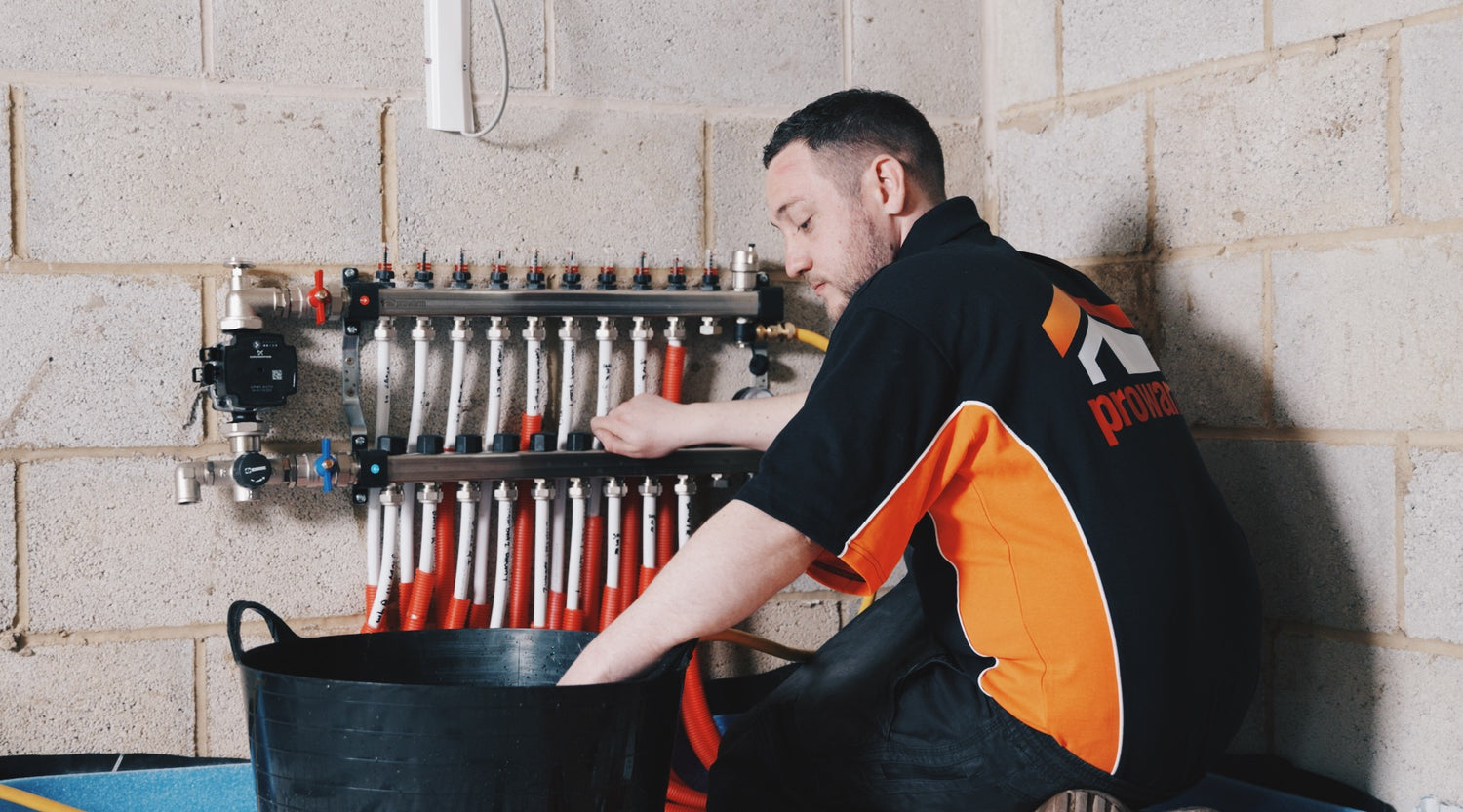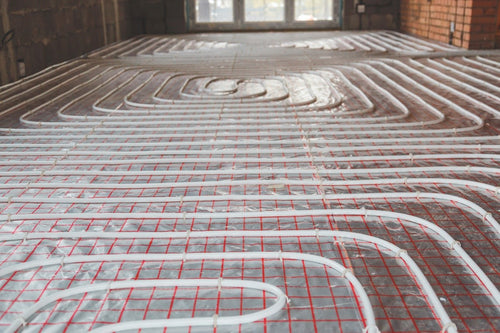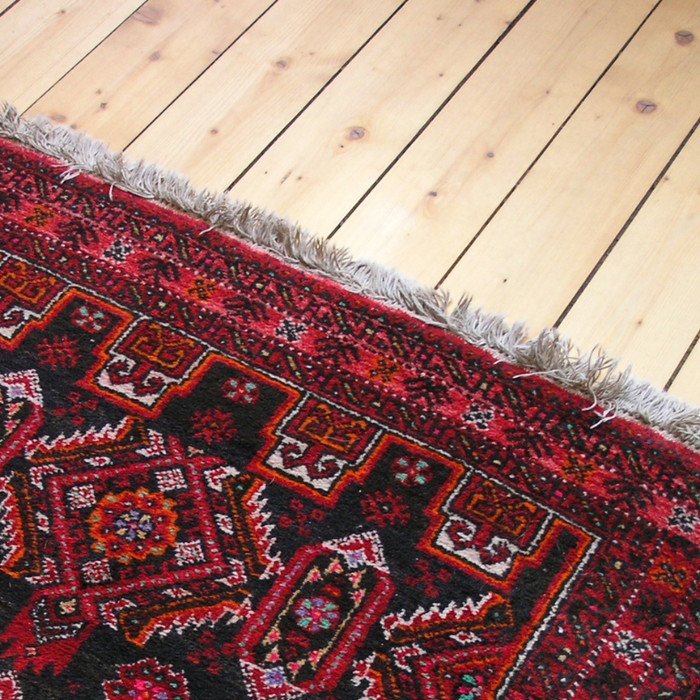
Experience ultimate warmth and luxury from the ground up with our premium electric underfloor heating solutions - create a comfortable and energy-efficient living space with ease.
Our underfloor heating experts are available weekdays from 7am to 6pm.
All our technical staff are fully qualified to deal with your enquiry. Contact us for expert advice on underfloor heating.
Call us 01268 567 016 Email us Visit the knowledge hub
Experience ultimate warmth and luxury from the ground up with our premium electric underfloor heating solutions - create a comfortable and energy-efficient living space with ease.
Explore products
Dive into a world of unparalleled comfort with our top-quality water underfloor heating systems - the perfect choice for a cozy, healthy and sustainable home.
Explore products
The Underfloor Heating Store is a market-leading, award-winning online retailer of electric and water underfloor heating systems in the United Kingdom. Established in 2008, we are proud to be the biggest supplier of underfloor heating nationwide, with a client base ranging from self-builders to tradesmen, large-scale builders to developers.
Introducing the ProWarm™ Electric Underfloor Heating Mat Kit 150W - the ultimate heating solution for your home, now in its newest and most advance...
View full detailsProWarm™ XP-PRO Insulation Boards are specially designed to provide excellent insulation and support for our electric underfloor heating systems on...
View full detailsThe ProWarm™ ProTouch-E WiFi Smart Thermostat is a cutting-edge solution for controlling your electric underfloor heating system with ease. Designe...
View full detailsDiscover the exceptional versatility and performance of ProWarm™ LoFlo™ LITE Dual Purpose Overlay Panel 1200x600x20mm. These innovative panels are ...
View full detailsProWarm™ BACKER-PRO insulation boards are the ultimate solution for superior waterproofing and heat insulation in underfloor heating and under tile...
View full detailsThe ProWarm™ Pro Digital Thermostat is an advanced and feature-rich option for controlling the temperature of your underfloor heating system. Desig...
View full detailsIntroducing the ProWarm™ Electric Underfloor Heating Mat Kit 200W - the ultimate heating solution for your home, now in its newest and most advance...
View full detailsUltraprime is an acrylic surface conditioner, it is suitable for a variety of building substrates, including plaster, timber, brick and block work ...
View full detailsThe ProWarm™ ProTouch V2 Touchscreen Thermostat is a versatile and user-friendly solution for controlling your electric floor heating system or wat...
View full detailsLet's turn up the heat
on your project
Looking to install an underfloor heating system? Our dedicated team of heating experts are always on hand to offer friendly and knowledgeable advice.
Underfloor heating is not expensive to run and can be seen to be a more cost-effective system to run in the long term compared to traditional heating systems. Studies have shown that the yearly cost to run underfloor heating in a bathroom costs less yearly than running your washing machine!
Underfloor heating can be sufficient to heat a house depending on several factors such as the size of the property, the type of underfloor heating system, and the insulation levels. A properly installed and designed underfloor heating system can distribute heat more evenly throughout a room, creating a comfortable and consistent temperature. However, it is important to ensure that the system is appropriately sized for the space it is intended to heat.
The best type of underfloor heating depends on the requirements of the property, such as the type of floor construction and the preferred heat source. For example, electric underfloor heating may be a good choice for retrofitting existing floors or small areas, while water-based systems are typically more suited to larger areas and can be more efficient when paired with a heat pump or condensing boiler. Ultimately, it is important to consult with a professional to determine the most suitable type of underfloor heating for your specific needs and budget.
Radiators are not typically required with underfloor heating, as the system is designed to distribute heat evenly throughout the floor and room. Underfloor heating can provide a more comfortable and consistent temperature compared to traditional heating systems, and it can also free up wall space that would otherwise be occupied by radiators.
It is not necessary to leave underfloor heating on permanently, as the system is designed to provide efficient and consistent heating even when used intermittently. However, it can be beneficial to maintain a consistent temperature in the home by using a programmable thermostat to set a schedule for the underfloor heating system. This can help to avoid wasting energy and reduce heating costs by ensuring that the system is not running unnecessarily when the space is unoccupied or during periods of milder weather.

At The Underfloor Heating Store, our highly-experienced team pride themselves on their unrivalled customer experience and superior technical support, with full detailed quotations that are able to be supplied within 24 hours from receiving your drawings or plans. Our in-depth knowledge of structural subfloors, floor coverings and different installation methods make us the industries leading experts in both water and electric underfloor heating systems.






Whilst electric underfloor heating systems use electrical cables to pass energy through and generate heat, water systems use a connected array of pipes set in the floor, a heat source and a pump to pass water through the pipes that in turn, work to heat your floor.
Discover the best option for you.
Level IT TWO is a general purpose, mid strength two-part smoothing underlayment. Its exceptional flow characteristics make it a very easy smoothing...
View full detailsProWarm™ BACKER-PRO insulation boards are the ultimate solution for superior waterproofing and heat insulation in underfloor heating and under tile...
View full detailsLevel IT one HDB is a single part cementitious floor leveller, containing a blend of specially graded fillers, fine cements and polymers for smooth...
View full detailsThe maximum performance, all-in-one floor leveller with Fibre Strand Technology (FST). BAL Level Max has a maximum bed depth up to 80mm in a single...
View full detailsProWarm™ XP-PRO Insulation Boards are specially designed to provide excellent insulation and support for our electric underfloor heating systems on...
View full detailsUltraFloor Level IT Renovate is suitable for the refurbishment of existing floors to depths between 3-40mm. The product is suitable for use on both...
View full detailsXPS insulation boards are specifically designed to provide cost-effective insulation for our underfloor heating mat systems on concrete or screeded...
View full detailsUltraTile Proflex Tile Adhesive - Extended Set - Pallet 54 Bags is a single part, standard set, flexible adhesive for wall and floor tiles. It is s...
View full detailsUltraTile ProRapid Flexible Tile Adhesive - Pallet 54 Bags is a single part rapid setting, premium grade cementitious tile adhesive perfect for ins...
View full details
Our highly experienced technical team are happy to assist you throughout your journey. Message the team on live chat or call 01268 567016

Adding a rug to a room with hard floor can add an additional layer of comfort to your home or business, whilst serving as a stylish addition however before adorning your heated floors with rugs, there are several crucial considerations...

There’s nothing better than putting on socks still warm from the radiator. Or slipping into a jumper fresh from the tumble dryer. But did you know that more and more families are struggling to afford to heat their homes? With...

With carpet providing a soft, luxurious feel to your home or business, many people ask whether underfloor heating and carpet can go together. It is well-known that underfloor heating matches perfectly with tiles and laminate, but can the trusty carpet fit in with...
{"one"=>"Select 2 or 3 items to compare", "other"=>"{{ count }} of 3 items selected"}
We will notify you on events like Low stock, Restock, Price drop or general reminders so that you don’t miss the deal
